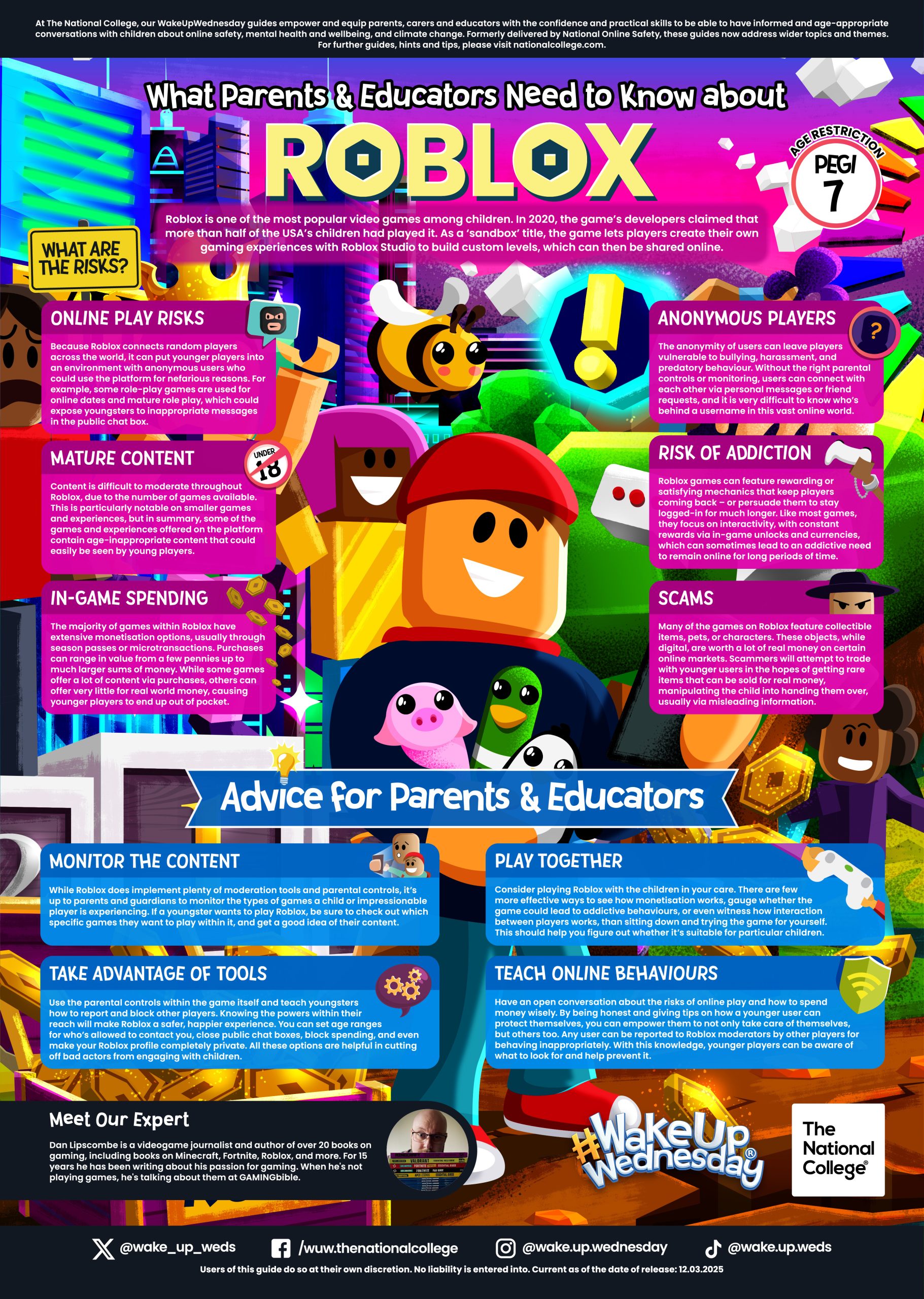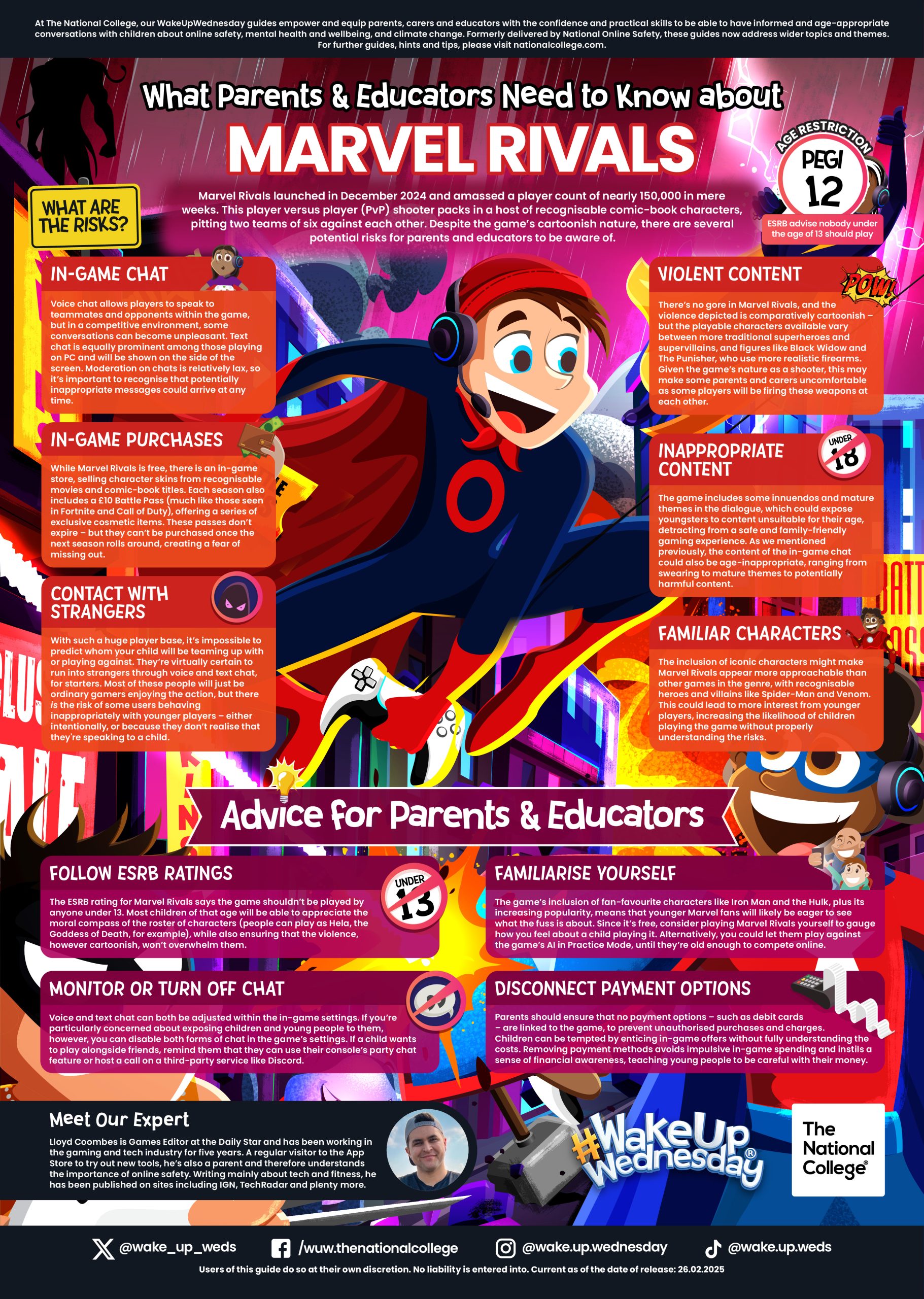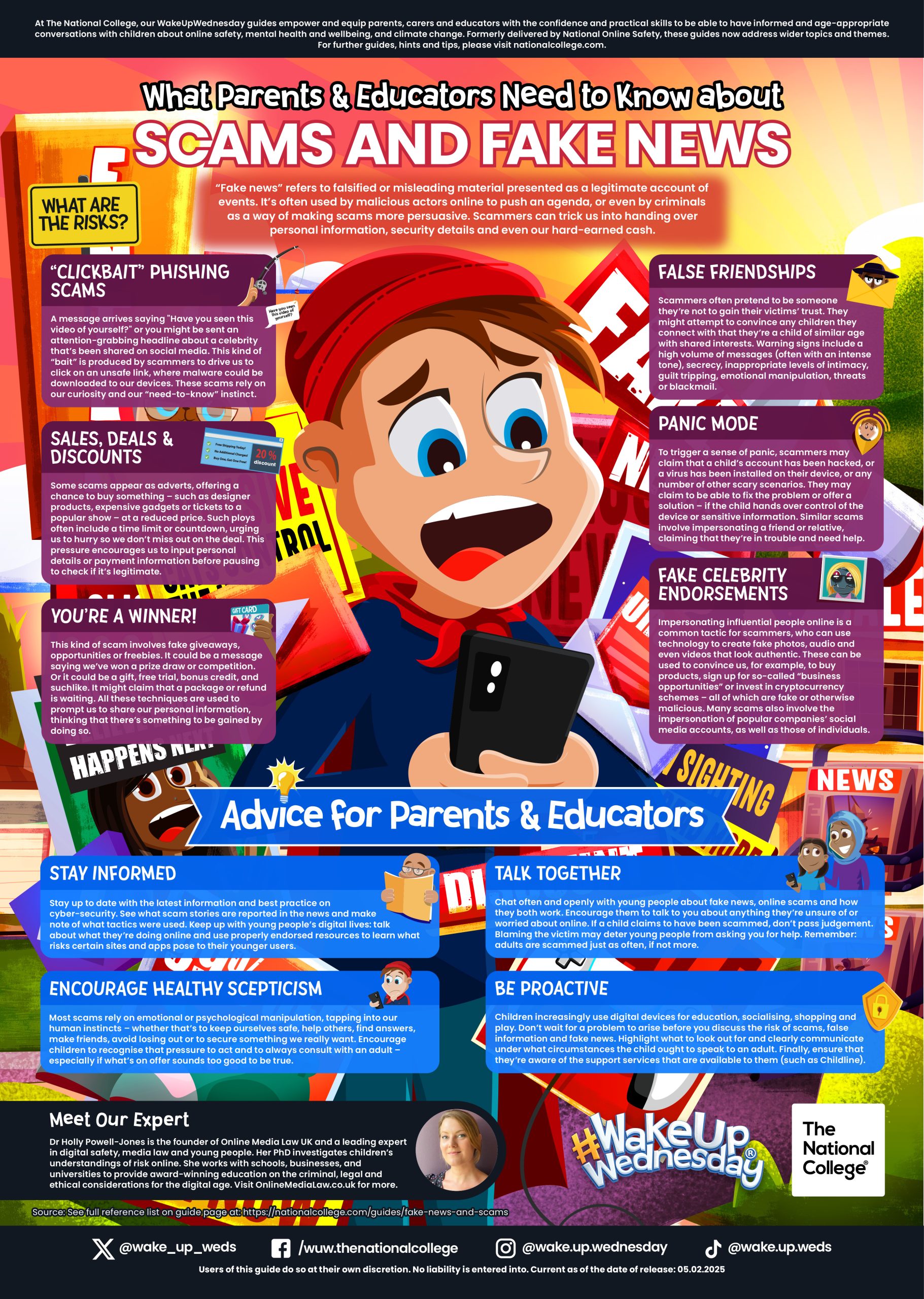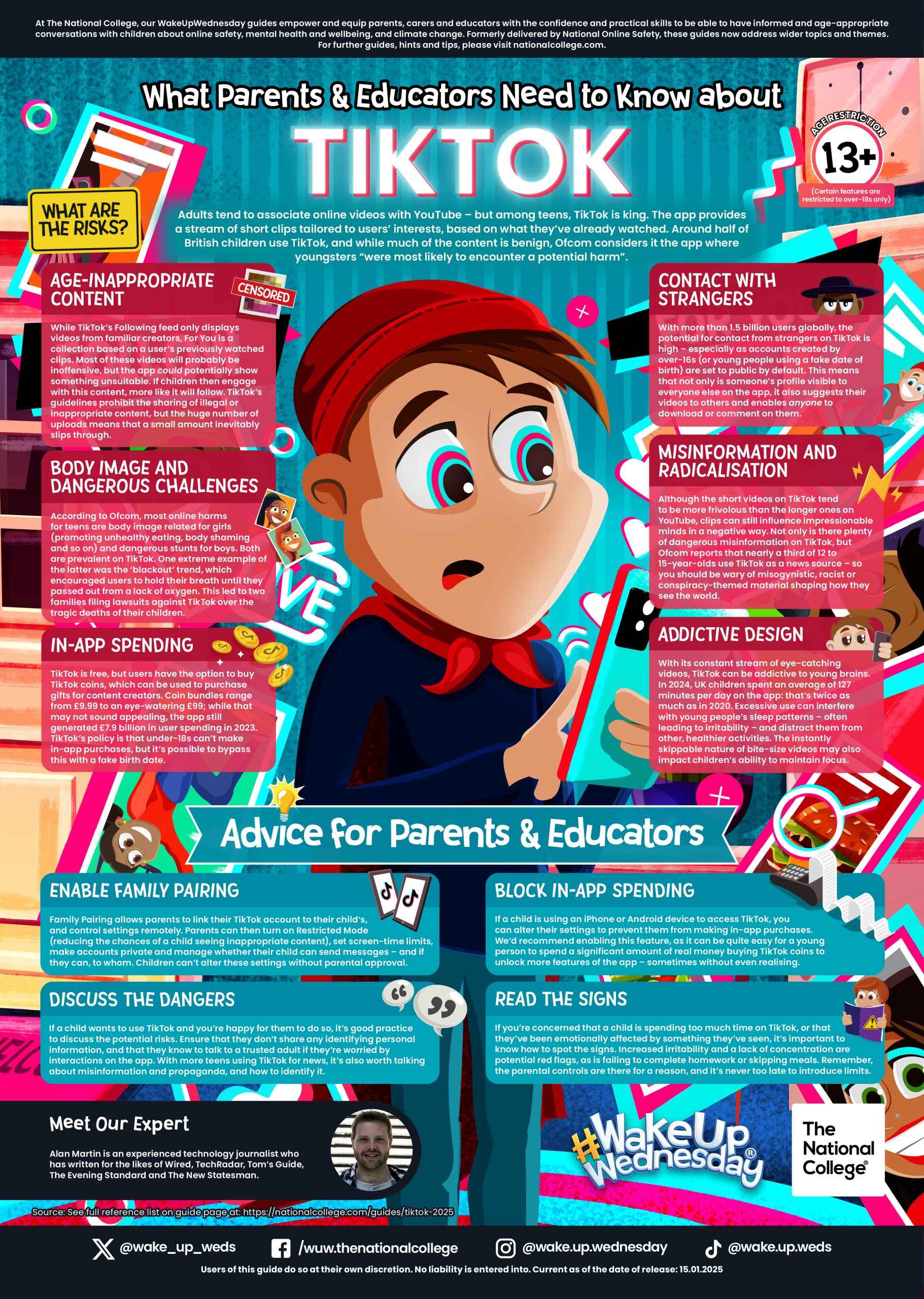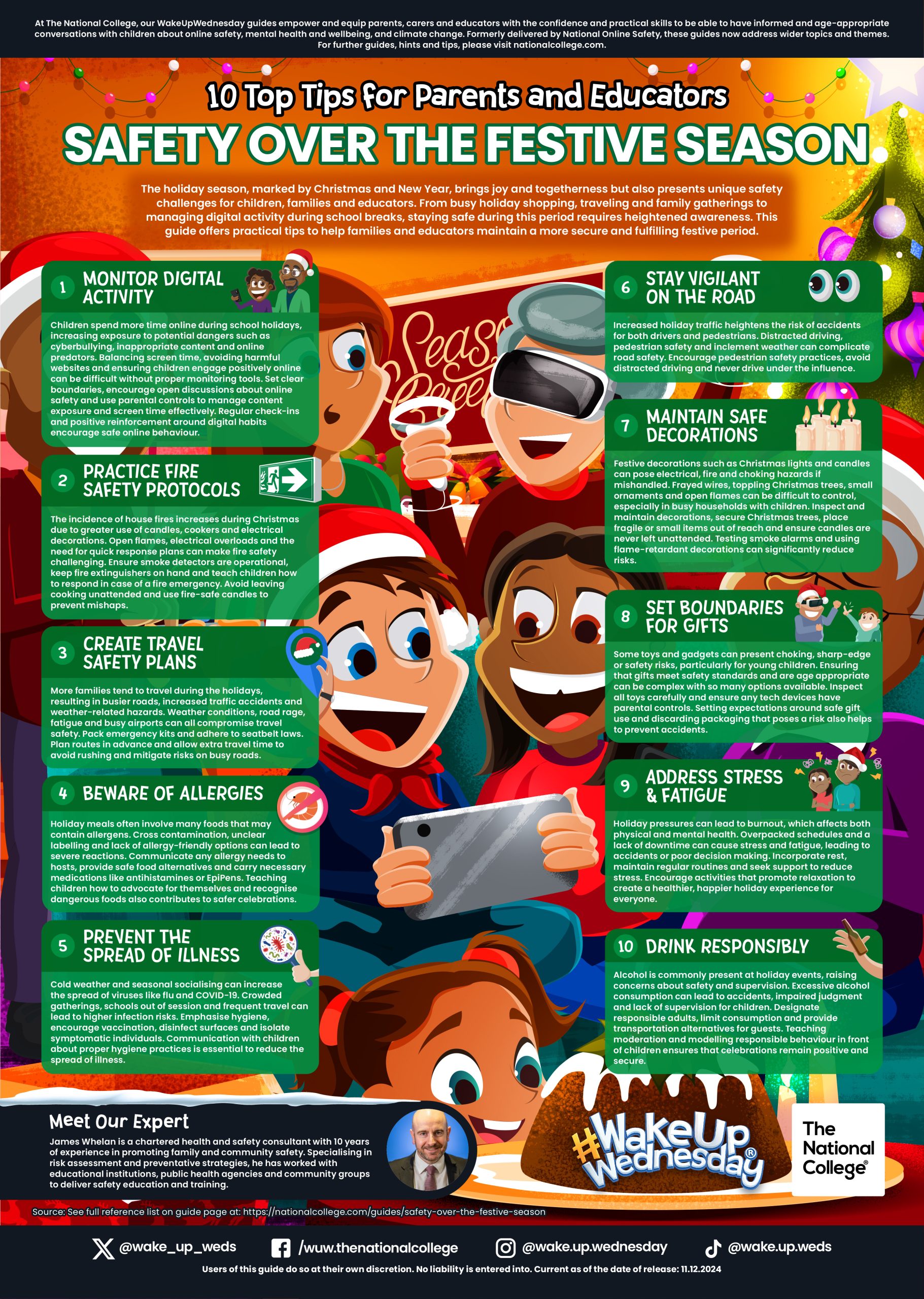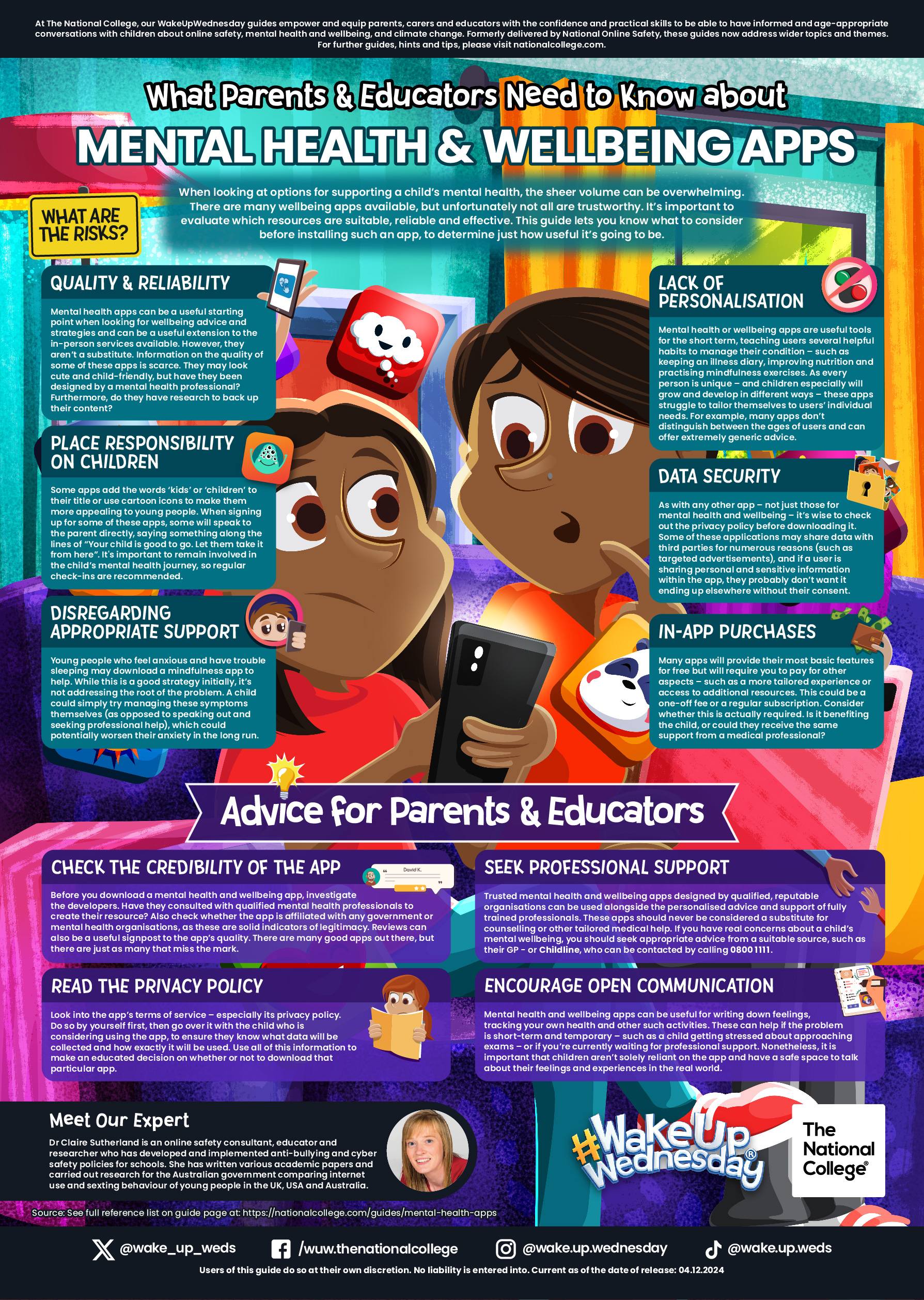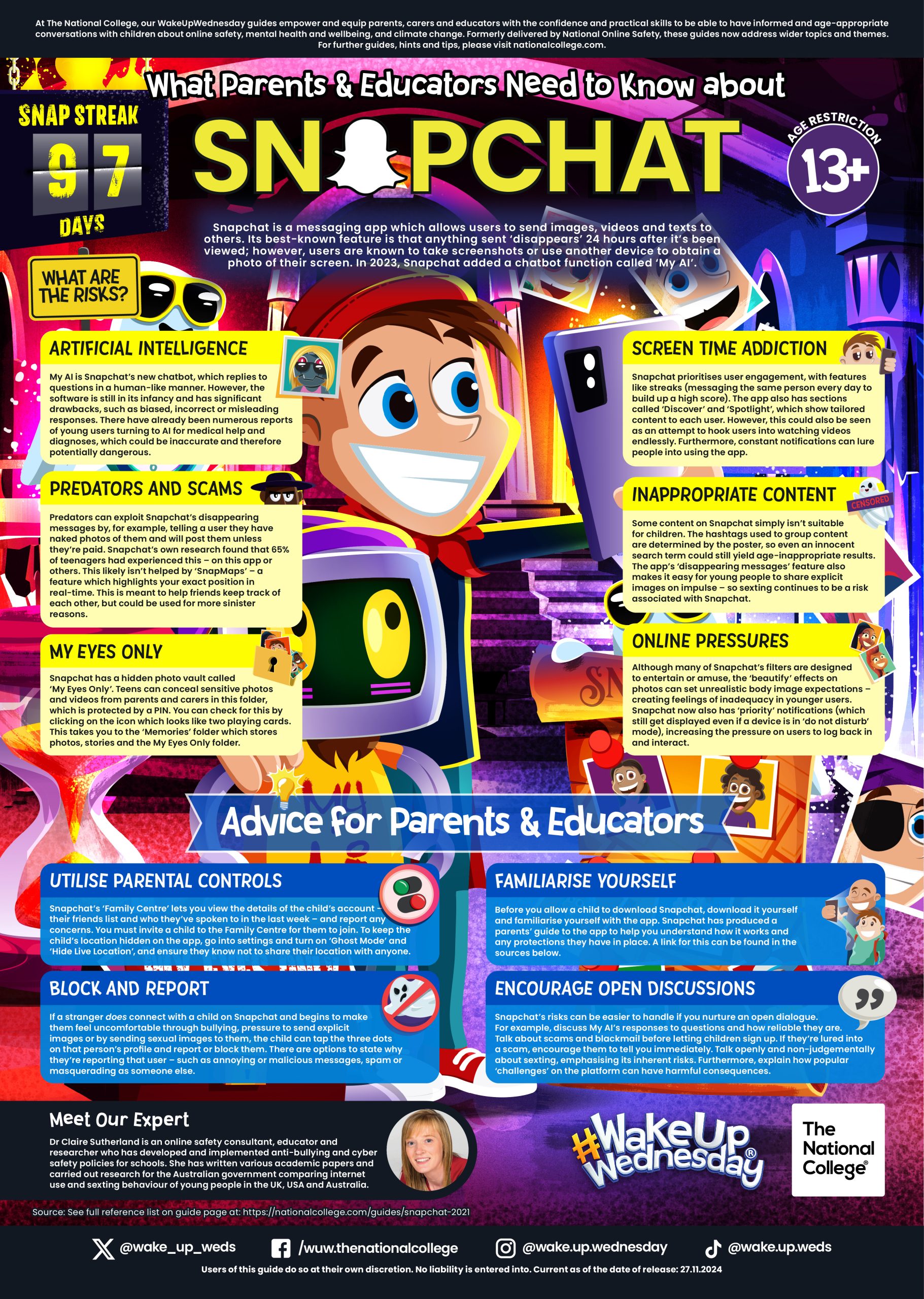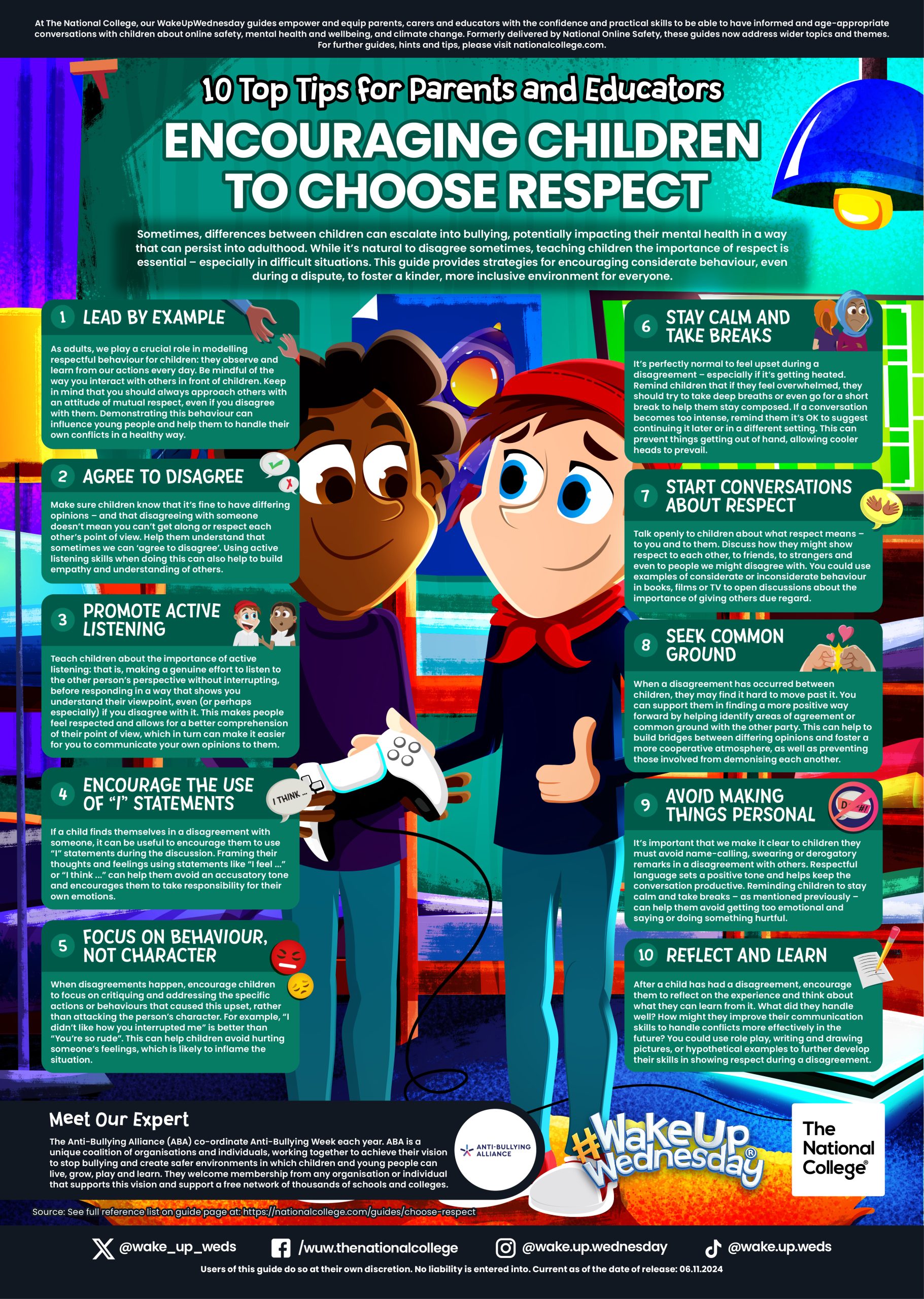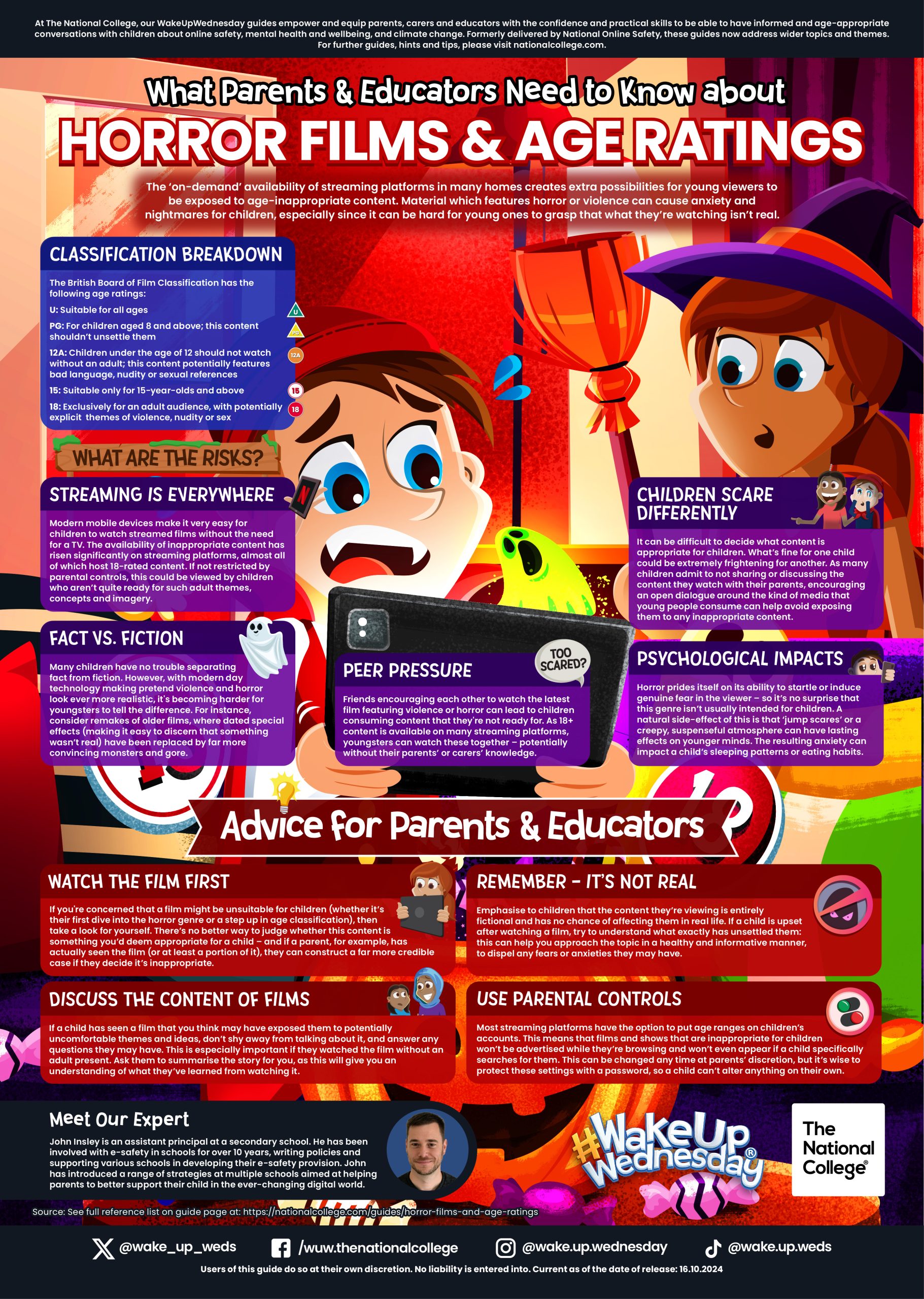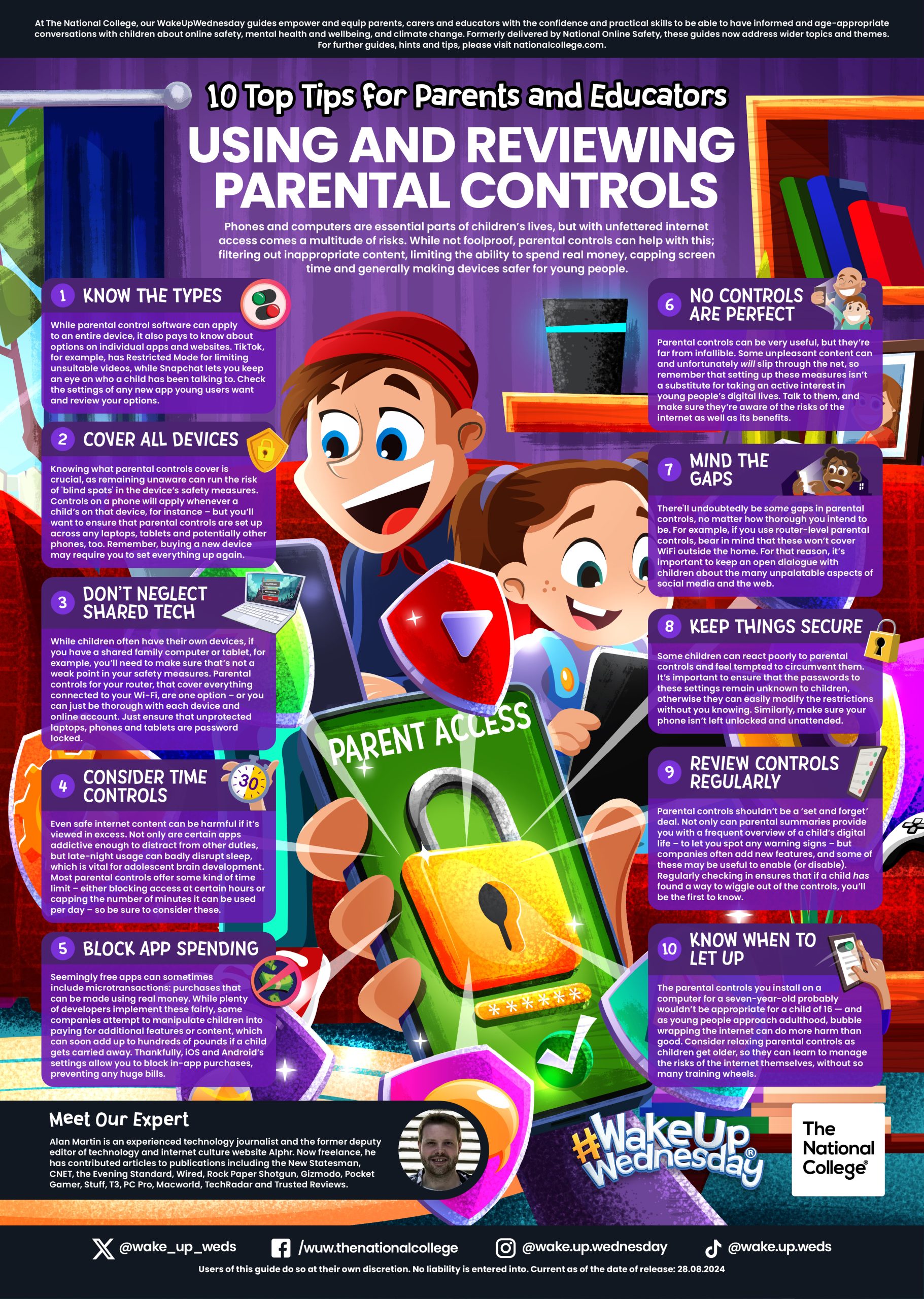Online multiplayer games like Roblox are enjoyed by millions across the world and can be a great way for friends to socialise; however, they can also expose young people to variety of potential harms. Roblox is a multi-platform game that enables people to play anonymously, which can often be something that attracts people to misuse the game and put younger players at risk of harm.
In addition to interacting with random strangers across the world, it’s important to be aware of other risk factors, such as in-game purchases and potential scams that can put young people at risk financially. We’ve created this week’s free guide – also available in podcast format – offering parents and educators expert advice about what can be done to ensure that young people have a safe and enjoyable experience with Roblox.
Grab our guide below!National Online Safety
This guide is from National Online Safety.

